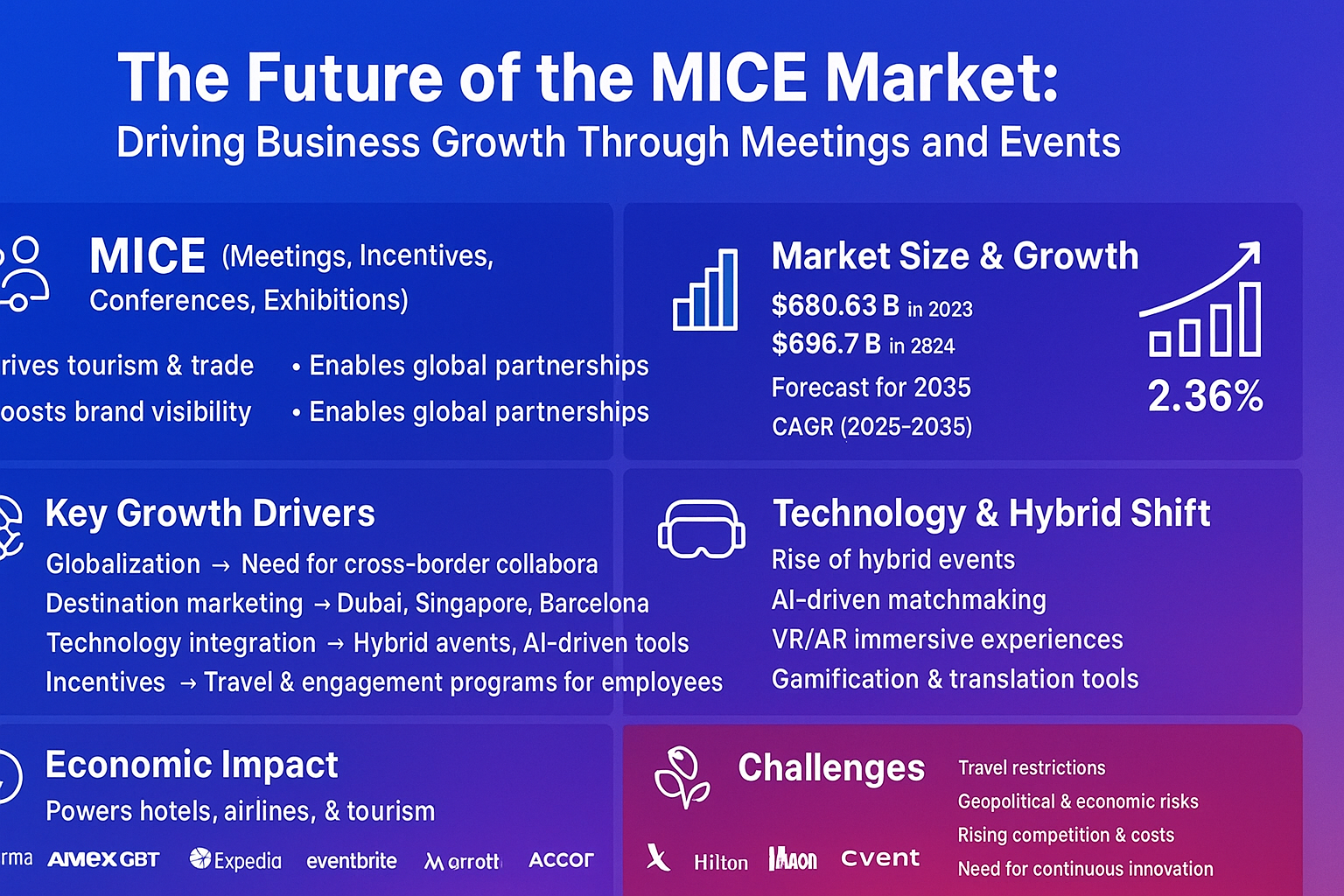Sustainability has emerged as a fundamental theme galvanizing the MICE Market, as governments, corporations, and consumers demand responsible event management that minimizes environmental impact.
The integration of green meeting initiatives is becoming standard practice, encompassing energy-efficient venues, waste reduction programs, sustainable catering, and promotion of public transport.
Organizations increasingly seek certifications such as ISO 20121, demonstrating commitment to sustainable event planning. These practices enhance corporate reputation and align with broader ESG (Environmental, Social, and Governance) goals.
Sustainability trends also influence destination selection, with preference given to locations offering eco-friendly infrastructure and cultural experiences promoting conservation.
Moreover, virtual and hybrid event formats complement sustainability efforts by reducing travel-related emissions without sacrificing engagement quality.
Through these concerted efforts, sustainability practices are not only raising standards but also unlocking new growth opportunities in the MICE Market, positioning it as a forward-looking and socially responsible industry.
Technology enhances conference tourism by enabling hybrid participation, which has become essential following recent disruptions. Virtual attendees can engage with live sessions, network, and access materials, extending the reach and influence of events.
Government initiatives aimed at promoting conference tourism—such as investment in convention centers, streamlined visa policies, and marketing campaigns—play a crucial role in market growth.

